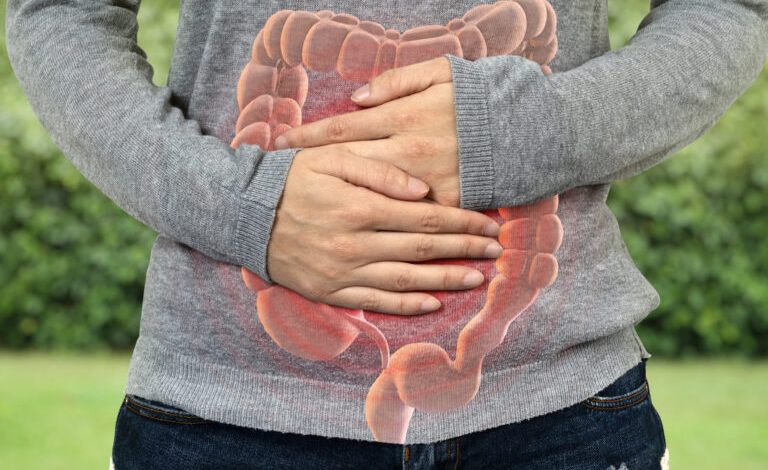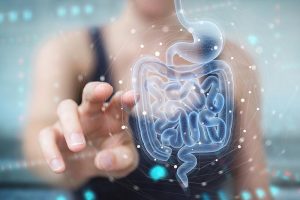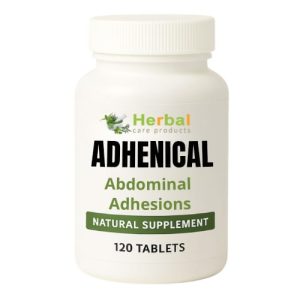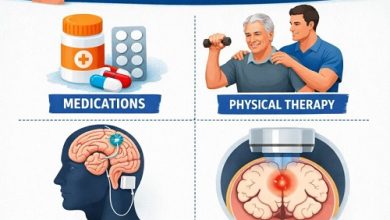Natural Ways to Improve Digestive Health After Surgery

Recovering from surgery is more than just waiting for your wound to heal. Many people notice that their digestion feels slower, irregular, or uncomfortable during the recovery period. This can happen for several reasons—anaesthesia, pain medicines, reduced activity, stress, and changes in diet. Supporting your digestive system naturally can make a big difference in how you feel day to day and may even speed up recovery.
I’ll share practical, evidence-based ways you can improve digestive health after surgery. We’ll cover diet, probiotics, hydration, gentle movement, and lifestyle changes. I’ll also discuss adhesions, a common but often overlooked complication after abdominal surgery, and why being proactive about your digestive wellbeing is so important.
Why digestion often changes after surgery
Your digestive system is sensitive to change. Surgery places stress on the body, which affects how well your stomach and intestines function. Some common causes of digestive problems after surgery include:
- Anaesthesia: slows down bowel movements, sometimes causing constipation or bloating.
- Painkillers (especially opioids): reduce bowel motility, making stools harder to pass.
- Reduced physical activity: less movement means slower digestion.
- Changes in diet: you may eat less fibre, fewer fluids, or more processed foods during recovery.
- Stress and anxiety: emotional stress can disrupt gut-brain signals, leading to discomfort.
While many of these effects improve naturally, you can actively support your body to restore digestive balance.

1. Nourish your body with the right foods
Food is one of the most powerful tools you have to help your digestive system recover. Choosing meals that are gentle yet nourishing reduces strain on the gut and prevents discomfort.
Focus on fibre
Fibre keeps your bowels moving. After surgery, it’s best to introduce fibre gradually to avoid bloating. Include:
- Oats, brown rice, and wholemeal bread
- Soft fruits such as bananas, pears, and stewed apples
- Cooked vegetables like carrots, courgettes, and spinach
- Legumes such as lentils or chickpeas (introduced slowly)
Stay hydrated
Water is essential for smooth digestion. Aim for at least 6–8 glasses daily. If you struggle with plain water, try herbal teas such as chamomile or peppermint, which may also soothe bloating.
Lean protein for healing
Protein helps repair tissues. Choose easy-to-digest sources:
- Chicken, turkey, or fish
- Eggs
- Yoghurt or kefir
- Plant-based options like tofu
Avoid heavy or irritating foods
During recovery, minimise fried foods, excessive caffeine, alcohol, and highly processed snacks. These can slow healing and make digestion more difficult.
2. Probiotics and gut-friendly foods
Your gut is home to trillions of bacteria that play a key role in digestion, immunity, and recovery. Surgery, antibiotics, and pain medicines can disrupt this balance. Probiotics—beneficial bacteria—can help restore it.
Sources of probiotics
- Live yoghurt or kefir
- Sauerkraut and kimchi (small amounts if tolerated)
- Miso soup
- Probiotic supplements (discuss with your doctor before starting)
Prebiotics support probiotics
Prebiotics are fibres that feed beneficial gut bacteria. Include:
- Onions, garlic, and leeks
- Asparagus
- Bananas
- Whole grains
Together, probiotics and prebiotics create a healthy environment for digestion and healing.
3. Gentle movement to stimulate digestion
After surgery, rest is important, but staying completely still slows digestion. Gentle movement helps your bowels work normally and reduces bloating.
Walking
A short daily walk, even around the house or garden, stimulates the gut and improves circulation. Gradually increase your steps as you feel stronger.
Breathing exercises
Deep breathing engages your diaphragm, massages your abdominal organs, and supports relaxation. Try slow inhalations through the nose, hold for a few seconds, then exhale fully.
Gentle stretches
Simple movements like lifting your arms overhead, side stretches, or mild yoga poses (if cleared by your doctor) encourage bowel activity.
4. Adhesions: an overlooked complication
Many people recovering from abdominal surgery hear about wound healing and infection risks but don’t learn much about adhesions. Adhesions are bands of scar tissue that form inside the abdomen. They can cause the intestines to stick together, sometimes leading to pain, bloating, or bowel obstruction.
While not everyone develops them, they are common after surgery. If you’ve had abdominal procedures and now struggle with persistent digestive issues, adhesions may be part of the problem. Some people look for natural options on how to treat adhesions without surgery because repeat operations can make the problem worse. Gentle movement, anti-inflammatory diets, and therapies such as abdominal massage are sometimes considered to help support comfort and mobility.
You can also explore whether certain lifestyle changes may help dissolve adhesions naturally, although research in this area is still growing. The key is to stay aware of the possibility and discuss any ongoing symptoms with your healthcare provider.
5. Stay on top of constipation
Constipation is one of the most common digestive complaints after surgery. If left untreated, it can cause discomfort, nausea, or even complications. Here are natural ways to prevent it:
- Increase fluids throughout the day.
- Eat soluble fibre from oats, apples, and flaxseeds.
- Stay active with short walks.
- Try natural laxative foods such as prunes or figs.
If constipation persists, ask your doctor whether you can use a gentle stool softener.
6. Manage bloating and gas
Bloating can feel worse after abdominal surgery because your core muscles are tender. To reduce gas and discomfort:
- Eat smaller, more frequent meals.
- Chew food thoroughly.
- Limit fizzy drinks.
- Avoid chewing gum, which increases swallowed air.
- Try herbal teas such as peppermint or fennel for relief.
7. Support healing with rest and stress management
Digestive health isn’t only about food and movement. Stress and lack of rest also affect the gut. Post-surgery, your body needs time to recover both physically and emotionally.
- Prioritise sleep: aim for 7–9 hours per night.
- Relaxation practices: meditation, mindfulness, or gentle breathing exercises calm the gut-brain axis.
- Accept support: let family and friends help with meals or chores to reduce your stress load.
8. Herbal support for digestive health
Many people turn to natural remedies to ease digestion after surgery. While you should always check with your doctor before adding herbs or supplements, some commonly used options include:
- Ginger: helps reduce nausea and improves motility.
- Peppermint: may ease gas and abdominal pain.
- Chamomile: supports relaxation and soothes the stomach.
- Turmeric: known for its anti-inflammatory properties, which may support healing.
Some patients also explore natural supplements from companies such as Herbal Care Products, which focus on plant-based remedies. These may provide additional support if conventional approaches aren’t enough.
9. Signs you should speak to your doctor
Most digestive symptoms after surgery improve within weeks, especially with supportive care. However, you should seek medical help if you experience:
- Severe abdominal pain that doesn’t improve
- Inability to pass stool or gas
- Persistent vomiting
- Fever or signs of infection
- Rapid, unexplained weight loss
These could indicate complications such as bowel obstruction or infection that need urgent attention.
10. Putting it all together
Improving digestive health after surgery isn’t about following strict rules. It’s about listening to your body and giving it the right support. Here’s a quick recap of the key steps:
- Eat fibre-rich, protein-balanced meals with plenty of fluids.
- Use probiotics and prebiotics to restore gut balance.
- Stay gently active to stimulate digestion.
- Be aware of adhesions and how they may affect recovery.
- Manage constipation and bloating naturally.
- Support healing with rest, stress reduction, and herbal remedies.
Final thoughts
Your digestive system plays a central role in recovery after surgery. Paying attention to what you eat, how you move, and how you care for your overall wellbeing can reduce discomfort and help you feel stronger sooner. If you’ve had abdominal surgery, remember that adhesions are a possible complication. Learning more about natural strategies, including options to dissolve adhesions naturally, may give you additional ways to manage long-term digestive health.





